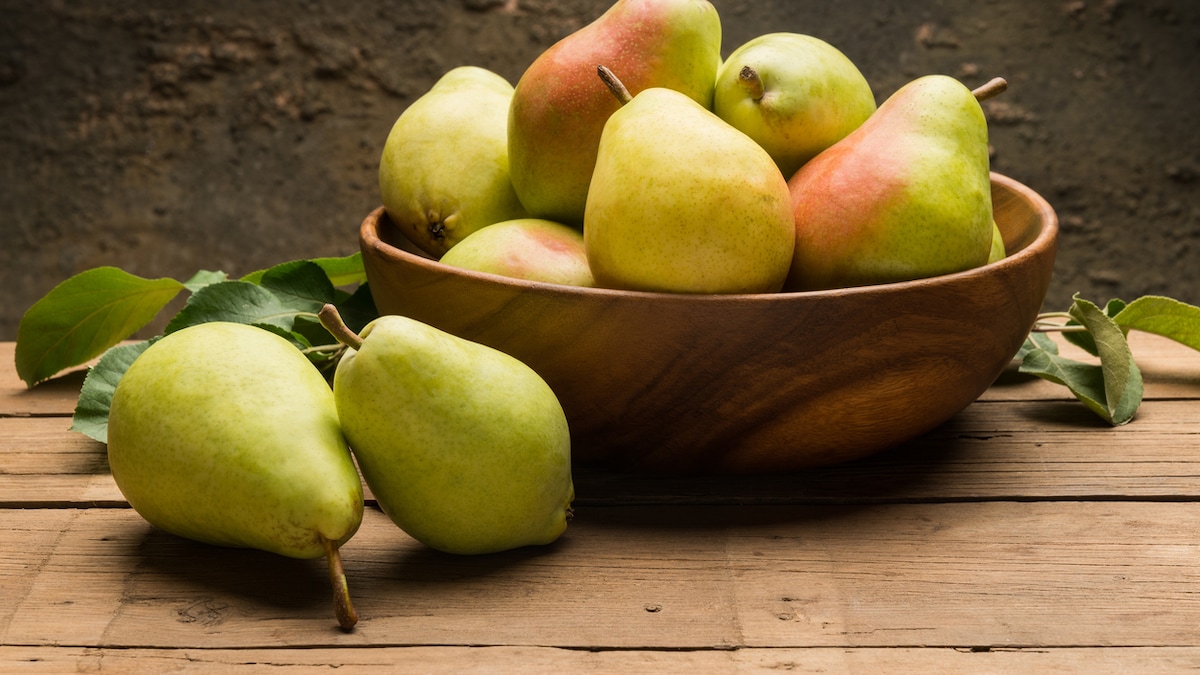When it comes to keeping your gut healthy and happy, we try all sorts of food combinations. However, many of the nutrients and antioxidants needed for this are readily available in fresh fruits and vegetables. One of the most nutritious fruits you can eat for gut health is the pear. We know this bell-shaped fruit doesn’t get as much attention as other “superfoods” out there, but trust me, they are superfoods in their own right! So, if you’re looking for a nutritious and delicious addition to your diet, it’s time to give pears a try. And guess what? They’re also perfect for improving gut health, so all those crunchy bites will make your gut happy! Let’s see how pears can help keep your stomach happy.
Read also:Best of the Season: 4 Unique Ways to Eat Pears This Season
Here are 5 reasons why pears are good for your gut
1. Great source of fiber
If you suffer from constipation, this is one of the main reasons why you should include pears in your diet. Pears, or nashpati, are packed with fiber, which is important for keeping your digestive system in shape. According to the United States Department of Agriculture, one large pear (230 grams) contains 7.13 grams of fiber. This fiber helps soften stool and promotes regular bowel movements. Plus, it also feeds the good bacteria in your gut, which helps keep the microbes balanced.
2. Keeps you hydrated
Did you know that pears are one of the fruits with the highest water content? Yes, you read that right! According to the USDA, pears contain 84% water, which is essential for staying hydrated. When you drink enough water, you help aid digestion and prevent constipation. Therefore, eating pears will not only keep you hydrated, but will also provide you with essential nutrients that contribute to overall well-being.
3. Full of prebiotics
Not only are pears packed with fiber, but they are also a great source of prebiotics. For those who don’t know, prebiotics are non-digestible fibers that feed the good bacteria in your gut, supporting a healthy microbiome. According to a 2021 review published in BMC Complementary Medicine and Therapies, several fibers in pears may be prebiotics, which selectively stimulate the growth or activity of microbial species in your gut. Therefore, eating pears may improve digestion and boost immunity.
4. It won’t make you feel heavy
If you have a sensitive stomach, pears can be a great snack option. They are low in acidity and easy to digest, making them perfect for people who suffer from issues like acid reflux or heartburn. Pears can help soothe the gut without irritating it, unlike citrus fruits, which can sometimes cause discomfort.
5. Keep your digestive system in good condition
Pears are rich in antioxidants like copper, flavonoids, and vitamin C, which can help reduce inflammation in the body. According to a research paper published in the journal Molecules, flavonoids may help reduce inflammation and lower the risk of major health problems like type 2 diabetes and stroke. Plus, the combination of fiber, hydration, prebiotics, and antioxidants makes pears a multipurpose food for keeping your digestive system in good shape.
Read also: Indian Cooking Tips: How to Make Pear Chutney (Nashpati)
So include this humble fruit in your daily diet and watch your digestive system become healthier and happier!
Disclaimer:
The information contained in this post is for general information purposes only. We make no representations or warranties of any kind, express or implied, about the completeness, accuracy, reliability, suitability or availability with respect to the website or the information, products, services, or related graphics contained on the post for any purpose.
We respect the intellectual property rights of content creators. If you are the owner of any material featured on our website and have concerns about its use, please contact us. We are committed to addressing any copyright issues promptly and will remove any material within 2 days of receiving a request from the rightful owner.

